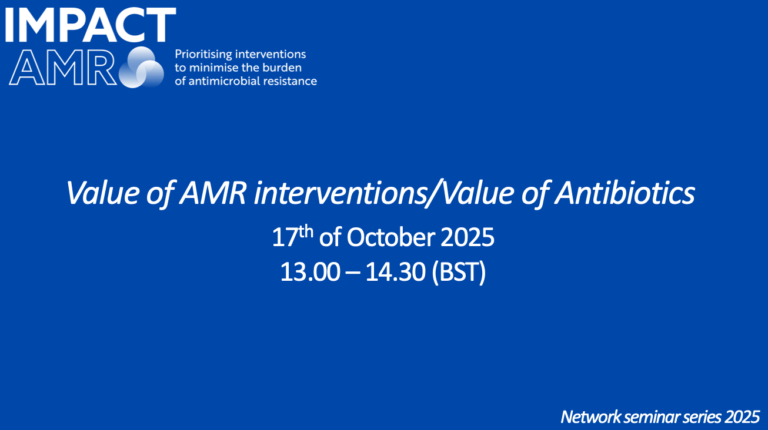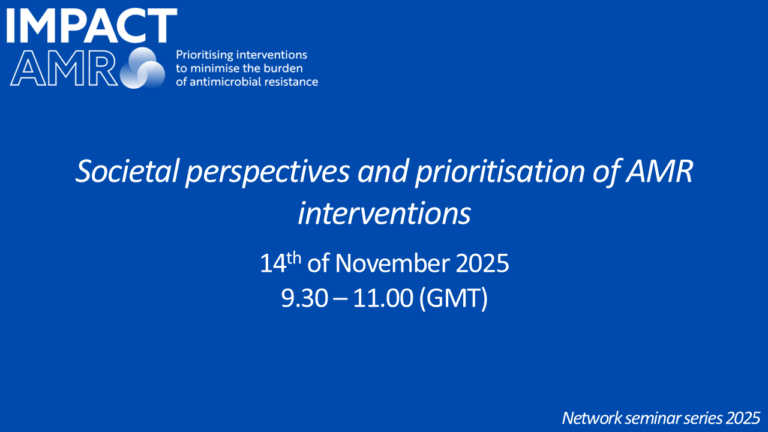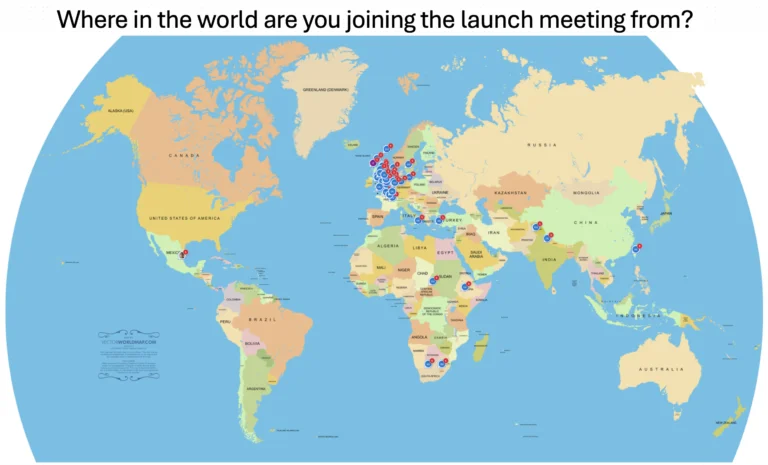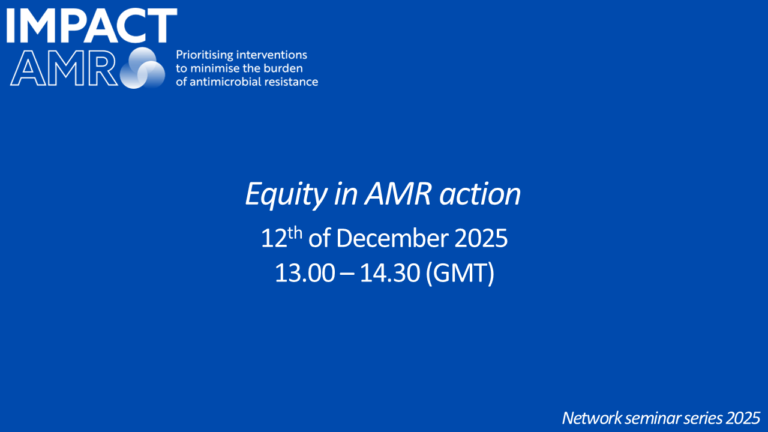IMPACT AMR Network Seminar Series 2025
The IMPACT AMR Network takes a transdisciplinary approach to improving the use of evidence to inform prioritisation of efforts to impact antimicrobial resistance. In Autumn 2025, we are running a series of thematic seminars, inviting two to three keynote speakers for each event to present their work and to engage with participants to discuss findings, approaches and ways forward.
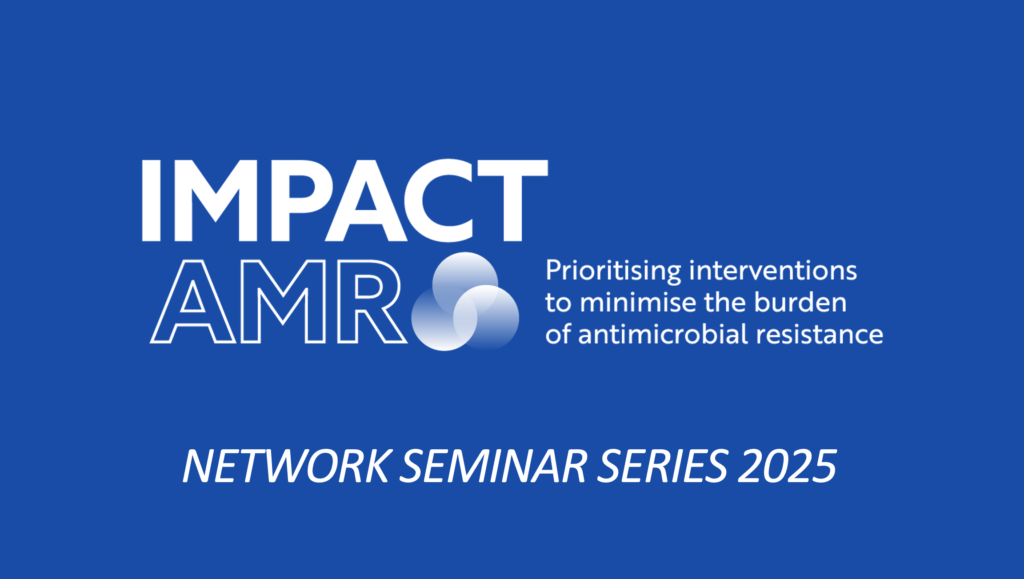
Seminars are online only, via Zoom. We have selected four thematic areas to explore different aspects of prioritisation of AMR interventions. Below, we outline the focus for each, our invited speakers and some links to their published outputs on the topic. You will also find the link to join the seminars.
This seminar will focus on different approaches and findings of prioritisation exercises that have been led by different organisations with the goal of guiding investment in AMR action.
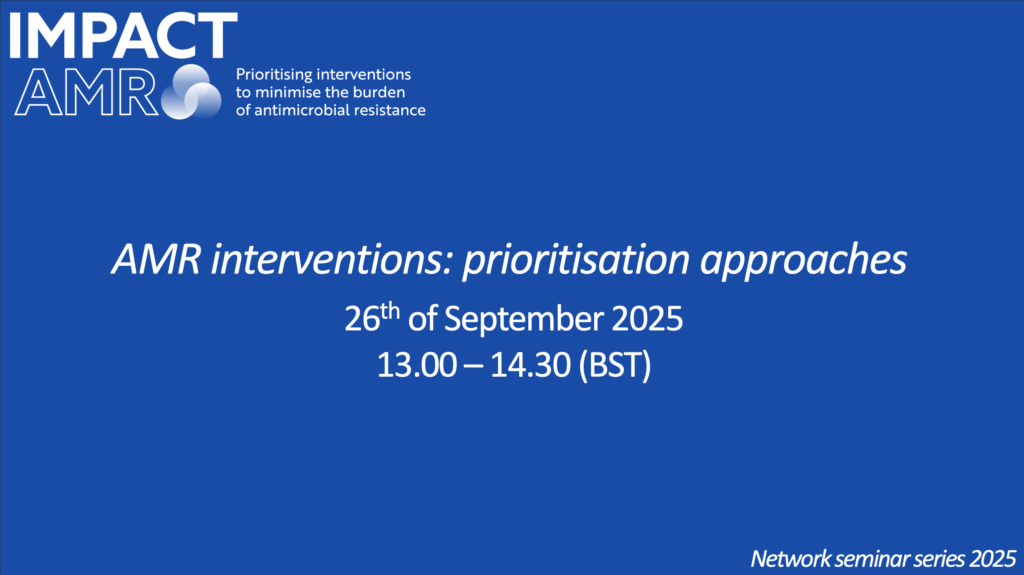
Invited speakers
Professor Michele Cecchini – The Organisation for Economic Co-operation and Development (OECD)
Dr. Naomi Rupasinghe, Senior Health Specialist – The World Bank Group.
Key readings
Embracing a One Health Framework to Fight Antimicrobial Resistance
This report, focusing on OECD and EU/EEA countries, identifies 11 One Health “best buys” that, if implemented systematically, would improve population health, reduce health expenditure and generate positive returns for the economy.
This report, with a focus on low- and middle- income countries provides a framework that outlines 20 intervention areas across the health, agriculture, and water sectors that can serve as starting points for discussions to develop sustainable systems addressing AMR at national and regional levels.
This seminar will consider different ways to value interventions on AMR, including the value of antibiotics, impacts on antimicrobial susceptibility and burden of AMR avertable with different interventions.
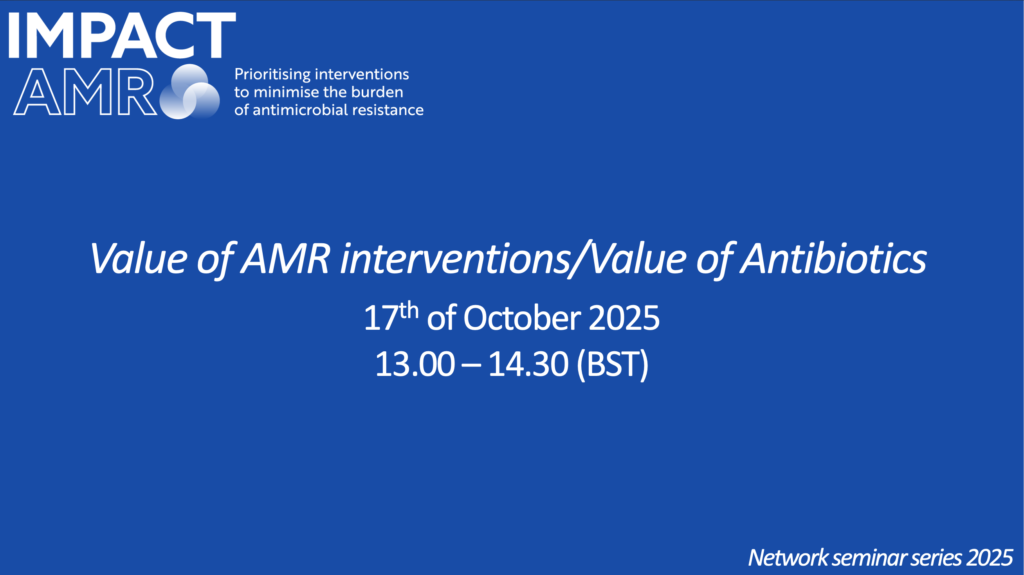
Invited speakers
Professor Christian Munthe – Centre for Antibiotic Resistance Research, The University of Gothenburg
Carys Redman-White – The University of Edinburgh
Dr. Zhenchao Zhou – Research Center for Eco-Environmental Sciences, Chinese Academy of Sciences.
Key readings
The 3D Value Framework for Sustainable Access to Effective Antibiotics
The 3D Value Framework is a straightforward and comprehensive model that focusses directly on what types of valuable outcomes there can be related to having sustainable access to effective antibiotics. This framework addresses recognized flaws in standard pharmacological health economics tools related to antibiotics and AMR, ensuring that broad benefits of managing AMR well are made visible in policy-making. It can be used as a checklist in the context of cost-effectiveness analyses for priority setting and justification of interventions to address AMR across all relevant policy domains – from innovation, over stewardship and environment, to international development support.
This paper evaluated’s focus was on the impact on AMR of changes in air pollution in China. To do this, the authors projected the premature death and welfare loss attributable to AMR derived from PM2.5 through 2060 using PM2.5 concentrations to reveal the direct or indirect influences of multiple factors on aggregate antibiotic resistance, authors introduced the SEM to reveal the pathways of influence, estimating direct and indirect effects on AMR of a range of factors including antibiotic use.
This seminar will introduce different ways of engaging with the different publics in developing AMR interventions and considering their wider potential impacts and trade-offs.

Invited speakers
Dr. Chantal Morel – University Hospital Bonn
Prof. Andrea Whittaker – Monash University
Prof. Marc Mendelssohn – Groote Schuur Hospital, University of Cape Town, The Trinity Challenge
Key resources
Deliberative Polling on Antimicrobial Resistance with Stanford University – The Trinity Challenge
In this study, researchers examined the level of support and opposition for relevant policies with the potential to impact AMR from 2419 citizens of 6 middle-income countries: Brazil and Colombia; Nigeria and Tanzania; and India and Indonesia. Participants considered trade-offs such as prioritising the use of antibiotics in food production systems versus a higher price for antibiotic-free meat, how antibiotics should be accessed by humans in farming/agriculture, and which policy interventions should be prioritised for the greatest public benefit.
AMR survivors? Chronic living with antimicrobial resistant infections
This seminar will focus on evidence and strategies to account for equity in AMR, including dimensions, measurement of performance, and prioritising AMR interventions.
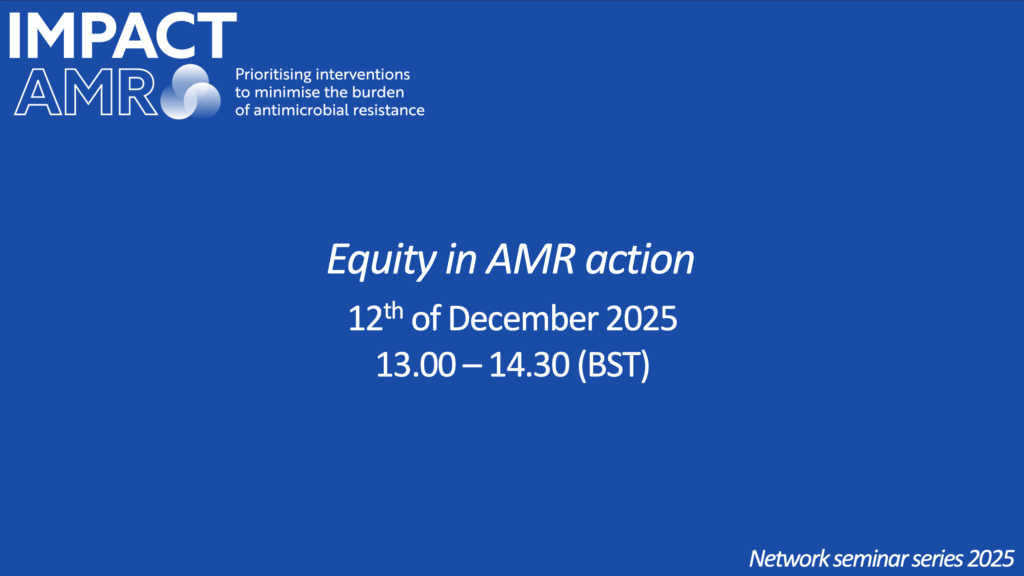
Invited speakers
Victoria Saint – Bielefeld University
Dr Michael Anderson – The University of Manchester and visiting fellow of The London School of Economics and Political Science
Dr Emily O’Neill – The London School of Economics and Political Science
Dr Kadia Petricca – Global Strategy Lab
Key readings
Mapping socioeconomic factors driving antimicrobial resistance in humans: An umbrella review
These papers scope out multiple dimensions of AMR that are exacerbated by social and economic factors in different contexts, showing the need for consideration of inequalities in the prioritisation of interventions.
With WHO EURO, the team propose the development of an AMR accountability index to benchmark and measure national performance in tackling AMR. The development of the index is ongoing, based on robust evidence synthesis and consensus-building methodologies.
The AMR Policy Accelerator at York University’s Global Strategy Lab has developed the Smart Choice Process to prioritisize AMR interventions systematically and transparently as part of policy-responsive research to achieve stronger national action plan (NAP) implementation. The team have supported multiple countries with support to update AMR NAPs using the Smart Choice Process, based on context-specific priorities.
